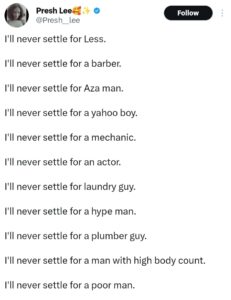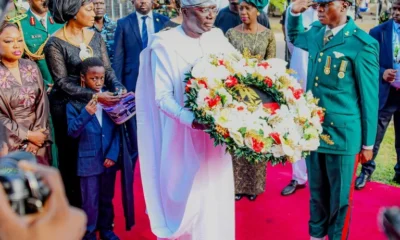News
UN Judge Lydia Mugambe jailed for enslaving housekeeper in UK

News
US Reacts As De@th Toll In Kwara Terror Attacks Hits 200

The United States Mission in Nigeria has condemned the k!lling of more than 200 civilians in recent attacks on communities in Kwara State.
Recall that terrorists launched de@dly attacks on Woro and Nuku communities in Kaiama Local Government Area of the state on Tuesday night, k!lling unsuspecting citizens.
It was gathered that the gunmen invaded the villages, opened fire on residents and burned homes.
According to reports, the de@th toll from the unfortunate incident hit 200 on Thursday night.
Reacting, the US Mission Nigeria condemned the k!lling via a post on its official X handle.
The post reads, “The United States condemns the horrific attack in Kwara state in Nigeria, which claimed the lives of more than 160 people, with the de@th toll still unconfirmed and many still unaccounted for.
“We express our deepest condolences to the families of those affected by this senseless violence.
“We welcome President Tinubu’s order to deploy security forces to protect villages in the area and his directive to federal and state officials to provide aid to the community and bring the perpetrators of this atrocity to justice.”
News
“I’ll never settle for a barber, yahoo boy or a poor man” — nail tech’s list of men she says she can’t marry sparks reactions online

A Nigerian nail technician has set social media talking after openly listing the kind of men she says she can never settle for.
In a now-viral post, she stated clearly that she refuses to “settle for less” and went on to mention professions and traits she considers a no-go area.
According to her, she can never settle for a barber, an aza man, a yahoo boy, a mechanic, an actor, a laundry man, a hype man, or a plumber. She also added that she wouldn’t marry a man with a high body count or a poor man.

News
Nigeria Police Force successfully repatriates $23,000 to international romance scam victim

The Nigeria Police Force INTERPOL National Central Bureau (NCB), Abuja has successfully repatriated the sum of Twenty-Three Thousand United States Dollars ($23,000) recovered from an international romance scammer to the victim in The Cayman Islands.
A statement from CSP Benjamin Hundeyin, spokesperson of the force, says the repatriation followed a request received from the Royal Cayman Islands Police Service seeking assistance of the INTERPOL NCB Abuja to investigate a Nigerian national, Achufusi Obioma Ikenna, who defrauded a resident of the Cayman Islands through an online romance scam.
‘’Acting on the request, INTERPOL NCB Abuja conducted discreet, intelligence-led investigations which led to the arrest of the suspect and the recovery of the sum of $23,000.
Following the completion of all necessary documentation and in collaboration with international partners, the recovered funds were formally handed over to the Royal Cayman Islands Police Service, through the British High Commission in Abuja, represented by Mr. Shaun McLeary, for secure delivery to the victim.’’
Hundeyin added that the suspect will be arraigned at the conclusion of investigation.
-
Business1 year ago
US court acquits Air Peace boss, slams Mayfield $4000 fine
-

 Trending1 year ago
Trending1 year agoNYA demands release of ‘abducted’ Imo chairman, preaches good governance
-

 Politics1 year ago
Politics1 year agoMexico’s new president causes concern just weeks before the US elections
-

 Politics1 year ago
Politics1 year agoPutin invites 20 world leaders
-

 Politics1 year ago
Politics1 year agoRussia bans imports of agro-products from Kazakhstan after refusal to join BRICS
-
Entertainment1 year ago
Bobrisky falls ill in police custody, rushed to hospital
-
Entertainment1 year ago
Bobrisky transferred from Immigration to FCID, spends night behind bars
-
Education1 year ago
GOVERNOR FUBARA APPOINTS COUNCIL MEMBERS FOR KEN SARO-WIWA POLYTECHNIC BORI












